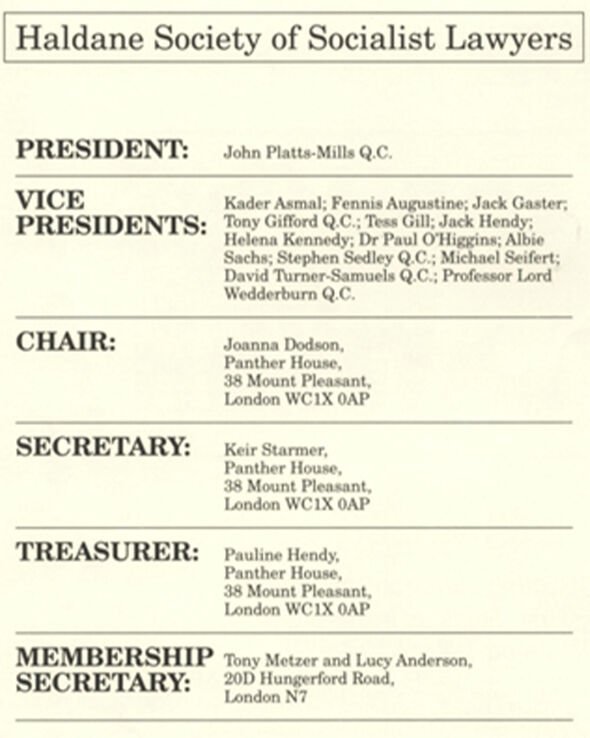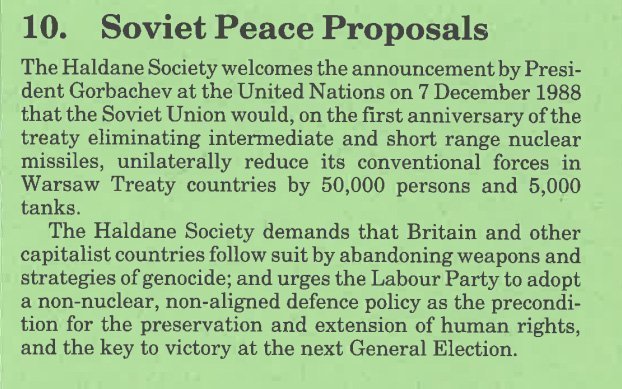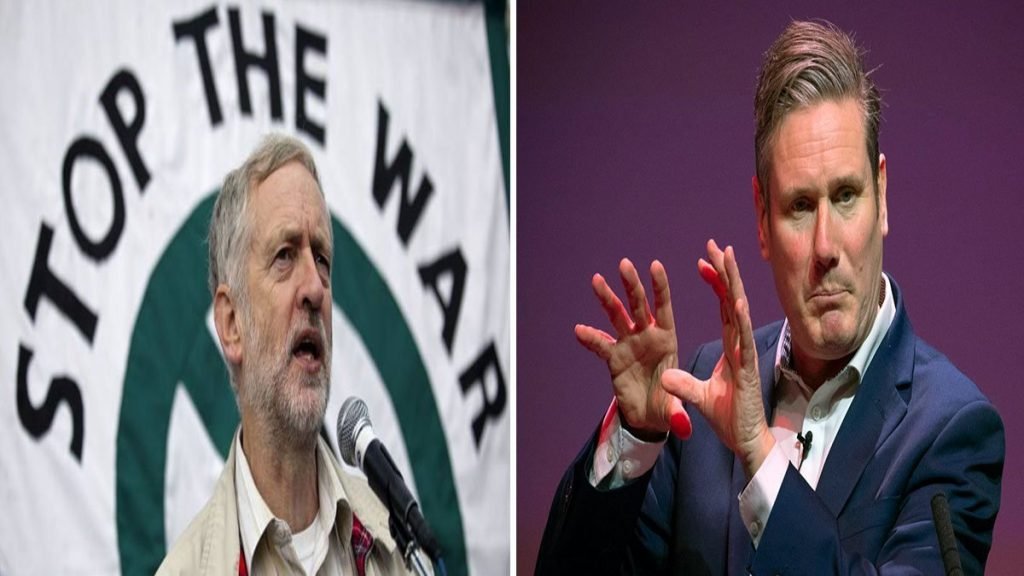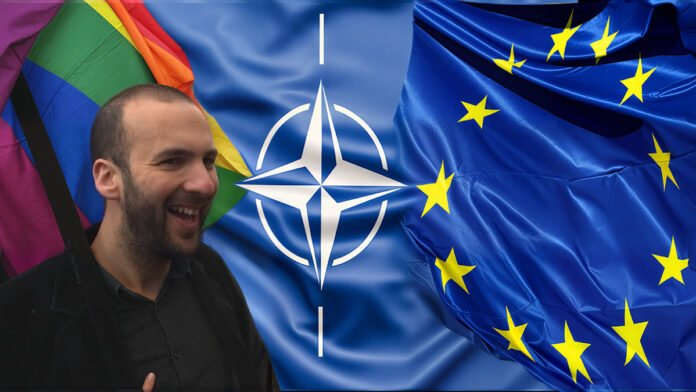TRIGGER WARNING FOR ALL THE GREEN SHEEPLE…
🎧 AI Audio Trial: Before Parliament, Before Kings, There Was the Moot (MP3)
It takes real political agility to say you want to leave NATO whilst promising to stay in it. But that’s exactly what Green Party co-leader Zack Polanski managed in a recent interview, delivering a masterclass in saying everything and nothing at once.
Pressed on whether the UK should leave NATO, Polanski first pointed to “Green Party policy” to stay in NATO but reform it from within. Then, without missing a beat, he called for “removing nuclear weapons” and “building an alternative alliance based on peace and diplomacy.” Sounds bold, doesn’t it? Sounds principled. Sounds like the kind of thing an anti-war party should say.
Until you remember that NATO is a nuclear military alliance. That’s not a bug. That’s the feature. The entire architecture of NATO rests on nuclear deterrence and collective military force. To suggest you can reform it into something peaceful and non-nuclear is like proposing to reform McDonald’s into a vegan café. It’s an exercise in fantasy designed to flatter your audience without ever confronting power.
When challenged on this obvious contradiction, Polanski admitted that in the medium to long term, he’d like to leave NATO. But only, he added carefully, if a new European alliance could be built first. An alliance that would presumably do all the things NATO does, but with a nicer name and better branding. In other words, never. Because if you’re building a European military alliance with nuclear weapons and collective defence obligations, you’ve just recreated NATO with a different letterhead.
This is the language of political gaslighting. Say enough to sound principled without ever saying enough to be held accountable. Appeal to the anti-war crowd whilst keeping the policy papers safely inside the NATO comfort zone. Promise transformation whilst pledging obedience. It’s having your peace dividend and spending it on weapons too.
The trick works because it exploits a genuine hunger for anti-war politics in Britain. People are exhausted by endless military interventions. They’re disgusted by the billions spent on weapons whilst public services crumble. They want politicians who will genuinely challenge the military-industrial complex, not just rearrange its furniture. Polanski sounds like he’s offering that challenge. But listen carefully to what he’s actually saying, and you’ll find he’s offering nothing but aspirational waffle wrapped in radical-sounding language.
It’s a familiar trick. The same political sleight of hand that gave us Keir Starmer’s “no more foreign wars” speech whilst he signs off every penny of Britain’s military aid to Ukraine. The same word games that turn moral conviction into marketing copy. The same performance of dissent that the establishment finds perfectly acceptable because it never threatens anything that matters.
Let’s talk about the “King of Middle Class Radicals”, Starmer and his own NATO shuffle, it’s the exact same choreography Polanski is now performing. Back in 1989, when Starmer was Secretary of the Haldane Society of Socialist Lawyers, the group passed a resolution calling on “Britain and other capitalist countries” to disarm. The motion declared that the Labour Party should “adopt a non-nuclear, non-aligned defence policy as the precondition for the preservation and extension of human rights.” Read that again. Non-nuclear. Non-aligned. In plain English, the resolution backed scrapping Britain’s nuclear deterrent and leaving NATO. The group even claimed this policy was “key to victory at the next general election.”
The motion was printed in issue No. 9 of the Socialist Lawyer publication in autumn 1989. It’s there in black and white. Starmer, the self-proclaimed last radical, putting his name to a call for Britain to leave NATO and abandon nuclear weapons. Fast forward to today, and Prime Minister Starmer doesn’t just support NATO. He’s pledged to increase defence spending to 5% of GDP. His once staunch anti-war stance has shifted to rattling sabres at Russia whilst committing endless billions to Ukraine. The man who wanted Britain to disarm now lectures anyone questioning unlimited military aid as Putin apologists.

This is the same political sleight of hand that gave us Starmer’s “no more foreign wars” speech during the Labour leadership campaign, words that sounded beautiful right up until they meant absolutely nothing. The same word games that turn moral conviction into marketing copy. The same performance of dissent that the establishment finds perfectly acceptable because it never threatens anything that matters. Starmer showed how it’s done: sound radical enough to win over the left, then pivot so completely that your former positions become inconvenient history to be buried and denied.

And now here’s Polanski, following the exact same playbook. Talk about leaving NATO whilst promising to stay in it. Sound anti-war whilst supporting the war machine. Appeal to Corbyn’s base whilst quietly preparing the same betrayal Starmer perfected.
If Polanski genuinely believed the age of NATO was over, he’d be calling for withdrawal, not reform. Reforming NATO is like refurbishing the gallows. The structure exists for a single purpose: projecting Western military power through collective force backed by nuclear weapons. You either accept that purpose or you reject it. There is no third way where NATO becomes a peace alliance that fights wars diplomatically.
But here’s what makes Polanski’s position particularly insidious. It’s not just incoherent. It’s designed to be incoherent. Because incoherence allows you to tell different audiences different things. To the anti-war left, you can say you want to leave NATO eventually. To nervous liberals worried about Putin, you can say you’re committed to collective security. To the media, you can present yourself as the reasonable radical, someone who wants change but not too much change, someone who can be trusted not to rock the boat whilst promising to sail it in a different direction.
This is controlled opposition in its purest form. It looks like radicalism. It sounds like radicalism. It uses all the right words and hits all the right notes. But it never, ever threatens power. Because power doesn’t mind you talking about leaving NATO in the medium to long term contingent on building an alternative alliance that nobody has any plan to build. Power minds you saying we’re leaving NATO next year and withdrawing from all military commitments that serve American imperial interests rather than British security. One is acceptable dinner party conversation. The other gets you smeared as a Russian asset.
Some will say this is just another split on the left, another example of progressives eating their own whilst the right marches on. But that misunderstands what’s happening here. This isn’t about left unity or sectarian squabbles. It’s about identifying politicians who talk the talk without ever intending to walk the walk. Polanski has studied the playbook well. He’s watched how Starmer transformed Labour from Corbyn’s anti-war platform into a cheerleader for NATO expansion. He’s learned from Nick Clegg how to position yourself as the fresh alternative, the principled voice, right up until the moment power comes calling and every principle gets traded for a ministerial car.

The liberal left may cry: but who will beat Reform? Who will stop the right if not a coalition of progressive parties? The answer is: certainly not parties that can’t articulate a coherent foreign policy beyond aspirational nonsense about reforming NATO. In a first-past-the-post system, you don’t win by trying to be everything to everyone. You win by standing for something clear enough that people know what they’re voting for. Right now, Polanski is doing a great job regurgitating Jeremy Corbyn’s old battle cries, but without the conviction or credibility behind them. He’s performing radicalism for an audience that desperately wants to believe someone in mainstream politics still means what they say.
But here’s the test of any politician’s sincerity on foreign policy: what are you willing to lose by holding your position? Corbyn lost everything. He was smeared relentlessly, abandoned by his own MPs, subjected to the most vicious media campaign in modern British political history. But he never wavered on opposing illegal wars and challenging NATO expansion. That’s what principle looks like when it costs you something.
“We acknowledge the need for greater defence spending and continued NATO membership, but also call for a more thorough reappraisal of strategic defence alliances. With Trump no longer a reliable ally, we need to deepen our defence cooperation with the EU, and review AUKUS.
The Green Party
Polanski’s version of principle costs him nothing. It offends no one who matters. It threatens no powerful interests. It allows him to sound radical whilst pursuing entirely conventional politics. That’s not courage. That’s camouflage. That’s the kind of politics that ensures nothing fundamental ever changes whilst everyone gets to feel good about supporting the progressive option.
And that’s the real danger. Because as long as Britain’s so-called progressives keep parroting NATO’s language whilst pretending to question it, there will be no meaningful anti-war movement. Just a chorus of polite dissent rehearsing the lines that power finds acceptable. Just politicians who sound like they’re challenging the war machine whilst pledging their loyalty to it. Just endless talk about reform and transformation and alternative alliances that never quite materialise because they were never meant to.
The Green Party had a chance to offer something genuinely different. A clear break from the bipartisan consensus on foreign policy. A real challenge to Britain’s role as America’s most reliable military partner. An actual anti-war platform that meant something more than aspirational statements about peace and diplomacy. Instead, they’ve chosen the path of least resistance. Stay in NATO but talk about leaving it. Support the military alliance but criticise militarism. Be radical enough to attract disaffected leftists but safe enough never to frighten the establishment.
It’s the perfect formula for electoral irrelevance wrapped in moral posturing. And it guarantees that when the next war comes, when the next intervention is proposed, when the next billions are earmarked for weapons instead of hospitals, the Green Party will issue a carefully worded statement expressing concerns whilst ultimately supporting the consensus. Because that’s what parties do when their principles are aspirational rather than actual.
You can’t be anti-war whilst pledging loyalty to the war machine. You can’t challenge NATO whilst committing to stay in it. You can’t build peace through institutions designed for war. These aren’t complicated positions. They’re basic logic. But in modern British politics, basic logic gets buried beneath layers of equivocation and compromise and realistic positioning until nothing means anything anymore and every party sounds the same.
Polanski represents the final stage of that process. The radical who isn’t. The alternative that offers nothing different. The voice of dissent that power finds perfectly acceptable. He’s another waiting-room attendant, pulling in the disillusioned left and keeping them comfortably contained, safely neutralised, perpetually waiting for the medium to long term that never arrives. Another Starmer in the making, complete with radical credentials from the 1980s that will be conveniently forgotten the moment real power beckons.
Yes, we all like the soundbites… but lets be really honest…
You can’t be anti-war while pledging loyalty to the war machine. You can only serve it or oppose it. Everything else is just camouflage.
Support Independent Journalism Today
Our unwavering dedication is to provide you with unbiased news, diverse perspectives, and insightful opinions. We're on a mission to ensure that those in positions of power are held accountable for their actions, but we can't do it alone. Labour Heartlands is primarily funded by me, Paul Knaggs, and by the generous contributions of readers like you. Your donations keep us going and help us uphold the principles of independent journalism. Join us in our quest for truth, transparency, and accountability – donate today and be a part of our mission!
Like everyone else, we're facing challenges, and we need your help to stay online and continue providing crucial journalism. Every contribution, no matter how small, goes a long way in helping us thrive. By becoming one of our donors, you become a vital part of our mission to uncover the truth and uphold the values of democracy.
While we maintain our independence from political affiliations, we stand united against corruption, injustice, and the erosion of free speech, truth, and democracy. We believe in the power of accurate information in a democracy, and we consider facts non-negotiable.
Your support, no matter the amount, can make a significant impact. Together, we can make a difference and continue our journey toward a more informed and just society.
Thank you for supporting Labour Heartlands









